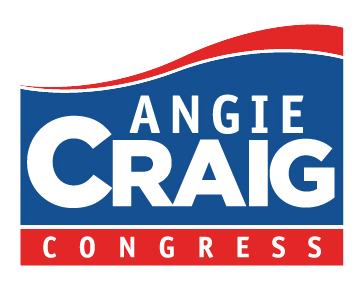6/23/2020
Senate and House Democrats introduced companion legislation which would create an opportunity for small businesses which already have received a Paycheck Protection Program (PPP) loan to be able to receive a second PPP loan.
The legislation includes restrictions primarily based on a demonstrable loss of revenue during the pandemic, and would extend the period in which companies could apply for a loan through at least the end of the year.
In the Senate the bill is called the Prioritized Paycheck Protection Program (P4) Act and is co-sponsored by Sens. Ben Cardin (D-Md.), Chris Coons (D-Del.) and Jeanne Shaheen (D-N.H.). The House companion is co-sponsored by Reps. Angie Craig (D-Minn.) and Antonio Delgado (D-N.Y.).
The bill extends the application deadline for initial PPP loans from June 30 to Dec. 30 or longer, at the discretion of the Small Business Administration (SBA). For companies which already have received a PPP loans, those with 100 employees or fewer – including sole proprietorships and self-employed individuals, would be eligible for a second loan.
“In conversations with small businesses up and down the state of Delaware, it’s become clear that many employers in vital sectors need more federal aid through the Paycheck Protection Program. Even as closures are ending, countless Delaware businesses are struggling to survive this crisis,” Coons said in a release.
To participate, businesses already must have expended an initial PPP loan, or be on pace to exhaust the funding, and must demonstrate a revenue loss of 50 percent or more due to the COVID-19 pandemic. Existing PPP funding would be used to make P4 loans.
“Congress must once again act urgently to support our most vulnerable small businesses through this crisis, so our economy can recover as quickly as possible after the pandemic. Every business we prevent from failing now, is a business that will be in a position to create jobs during the recovery,” Cardin said.
The bill follows a report by the SBA Inspector General last month, which found that SBA’s failure to issue guidance to prioritize underserved and rural markets in PPP “did not fully align” with the congressional intent of the CARES Act.
“This global pandemic has had devastating impacts on the small businesses that keep our Main Streets thriving and build memories in our communities. That’s why I’m introducing a bill that gives small businesses an opportunity to secure an additional PPP forgivable loans,” Craig said in a release detailing the House bill.
Other restrictions on the P4 loan include publicly traded companies being ineligible for the loans; hospitality and lodging businesses with multiple locations limited to an aggregate loan amount of $2 million; and reserving the lesser of $25 billion or 20 percent of PPP funds for employers with 10 or fewer employees, as well as small businesses in underserved and rural communities.
“PPP has been the lifeline that has kept many small businesses from going under,” Shaheen said. “Yet, revenues for many small businesses are still at unsustainable lows and a second loan is needed as soon as possible.”
The bill also directs SBA to issue guidance to give priority to businesses with 10 employees or fewer in the processing and disbursement of P4 and PPP loans, and requires SBA to request demographic information of P4 and PPP loan recipients. It also would allow P4 recipients maximum flexibility to apply for loan forgiveness as soon as 8 weeks after the loan disbursement.
“With funding still available through PPP, Congress must do all we can to help the businesses who need it most,” Delgado said.
